Best Software Testing Tools for QA Teams in 2026: Top Picks by Use Case
Learn with AI
A good software testing tool can significantly improve your QA process when used properly. According to the State of Software Quality Report, 51% of QA practitioners saw higher-quality software after adopting automation, and 49% were able to test more often and more thoroughly.
In this article, we review the top software testing tools available on the market today.
Let's dive in!
Criteria to choose a software testing tool
Before choosing a software testing tool, consider the following criteria:
- Is the tool easy to use with a user-friendly interface and a low learning curve?
- Does it support a wide range of testing types (web, mobile, and API applications)?
- Does it offer multiple testing modes (no-code, low-code, full-code)?
- Can it integrate seamlessly with CI/CD pipelines, version control, and project management tools?
- Does it allow easy updates to test scripts when the application changes?
- Can tests run across multiple environments (browsers, devices, operating systems)?
- Does it provide clear, actionable reports?
- Is the tool suitable for projects of all sizes and scalable as you grow?
- Does it have strong community support, good documentation, and reliable technical support?
- Is it feature-rich while still fitting your budget?
Top software testing tools you need for 2025
1. Katalon [All-in-one Software Testing Tool]

Katalon supports your QA team across the entire software testing life cycle.
With Katalon, you can write tests in no-code, low-code, or full-code mode, manage testing in a centralized dashboard, schedule test runs, execute across environments, and generate detailed reports.
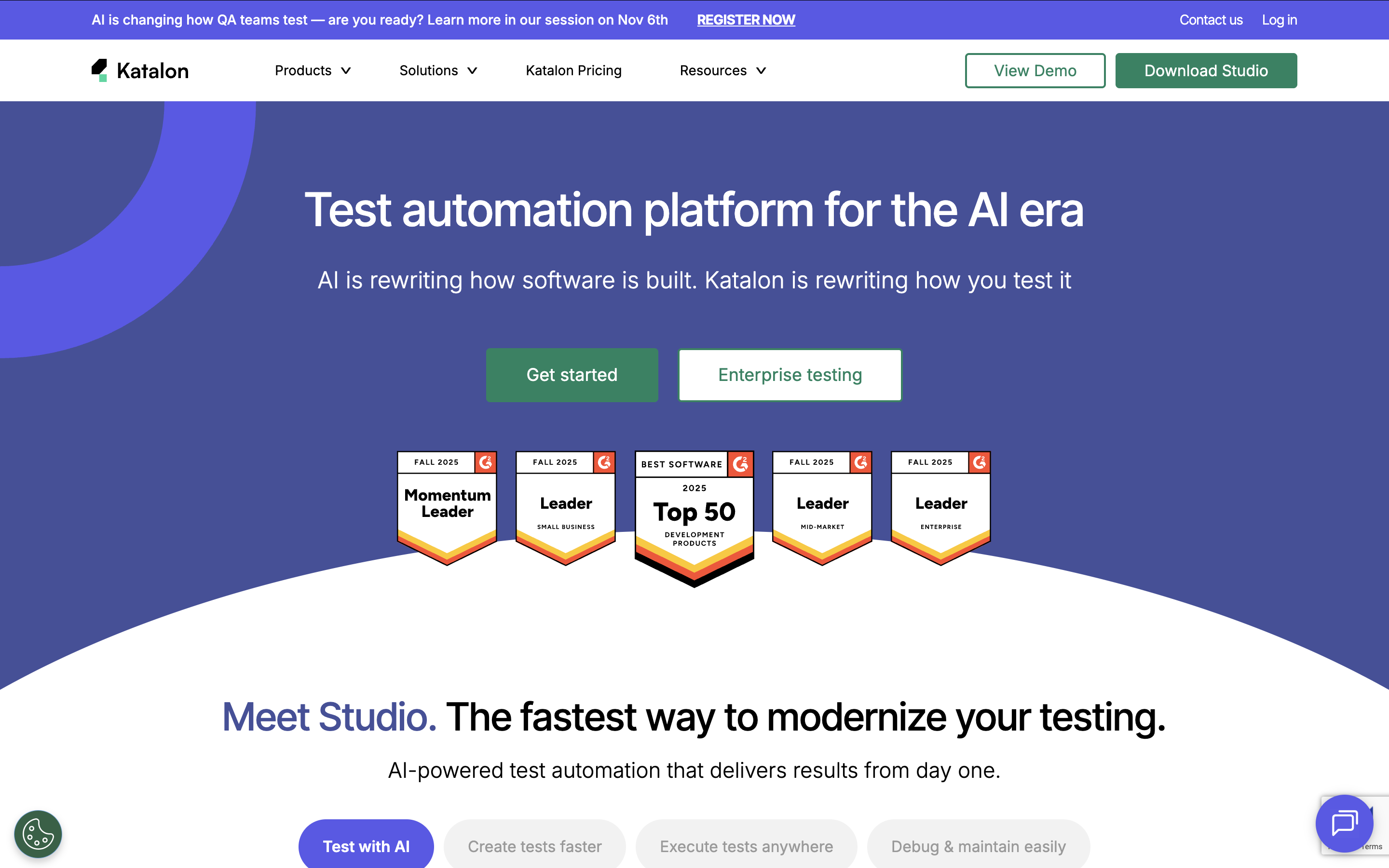
And all of that applies to web testing, API testing, and mobile application testing. Katalon acts as a centralized platform for all your QA activities.
Feature highlights:
- Suitable for individual testers, QA teams, and large enterprises
- No-code, low-code, and full-code scripting in Groovy
- Automatic test maintenance
- Supports web, mobile, API, and packaged app testing
- Run tests locally, on cloud, or on-premise with CI/CD integrations
- AI-powered regression testing with TrueTest
- Data-driven testing and BDD supported
- Extensive integration ecosystem with ALM and CI/CD tools
- Detailed reporting with analytics, screenshots, videos, HTML snapshot, and Test Suite report emails
- Comprehensive documentation and tutorials via Katalon Academy
Visit Katalon Website | G2 Reviews
Price: Free and flexible paid plans
Start Katalon Free Trial Today
2. Selenium [Top Web App Testing Framework]

Rolled out in 2004, Selenium is one of the most popular open-source frameworks for web automation testing. Its suite includes Selenium WebDriver, Selenium Grid, and Selenium IDE.
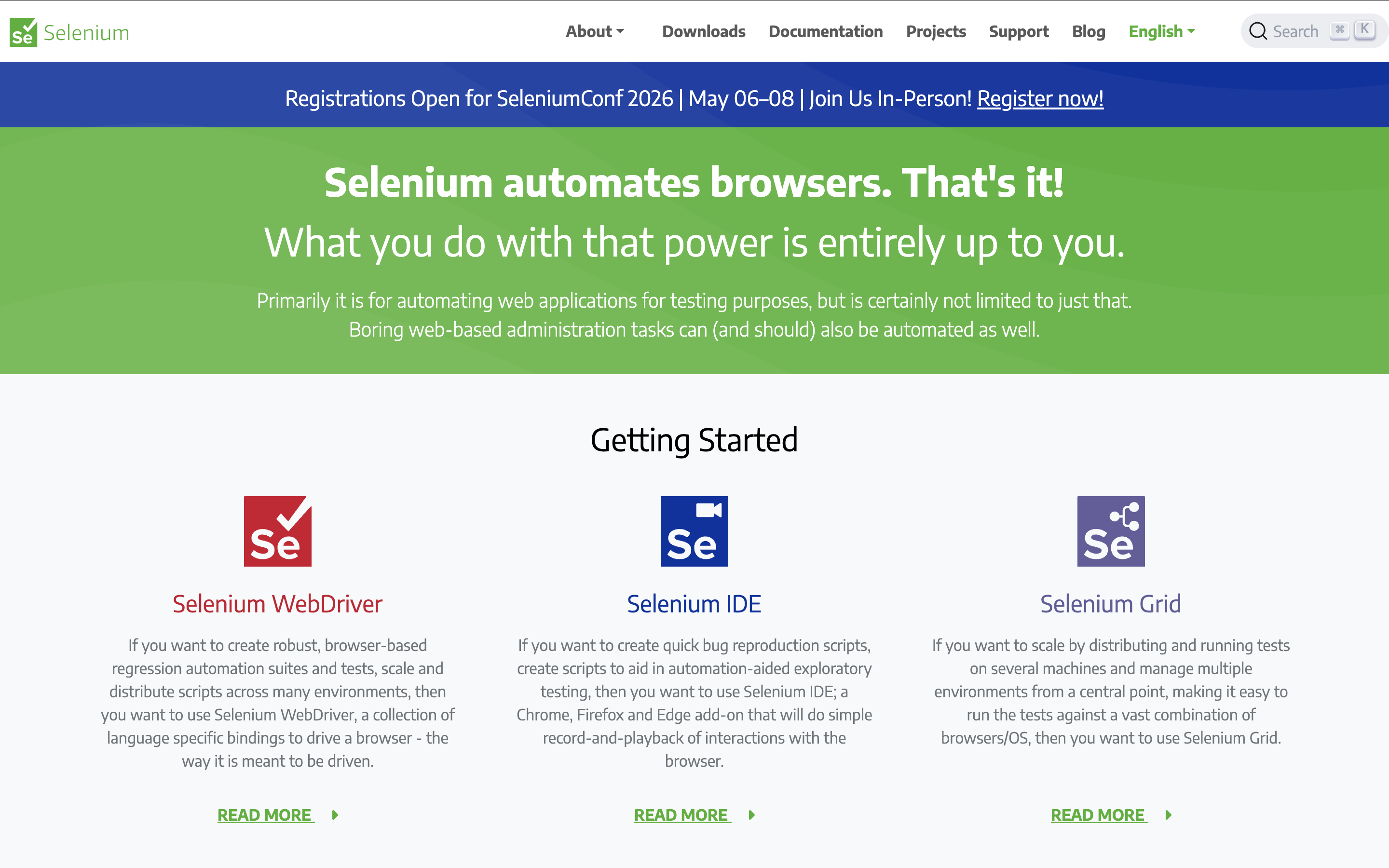
Feature highlights:
- Supported programming languages: Java, C#, Python, JavaScript, Ruby, PHP, etc.
- Supported browsers: Chrome, Firefox, IE, Microsoft Edge, Opera, Safari
- Testing on local or remote machines via the Selenium server
- Parallel and cross-browser execution
- Integrations with frameworks (e.g., TestNG) and CI/CD tools
Visit Selenium Website | G2 Reviews
Read More: Selenium Testing: A Complete Tutorial
3. Appium [Top Mobile App Testing Framework]

Like Selenium, Appium is also an open-source automation testing tool, but focused on mobile applications. It uses the mobile JSON wire protocol to automate UI tests for native, web, and hybrid apps on both Android and iOS.
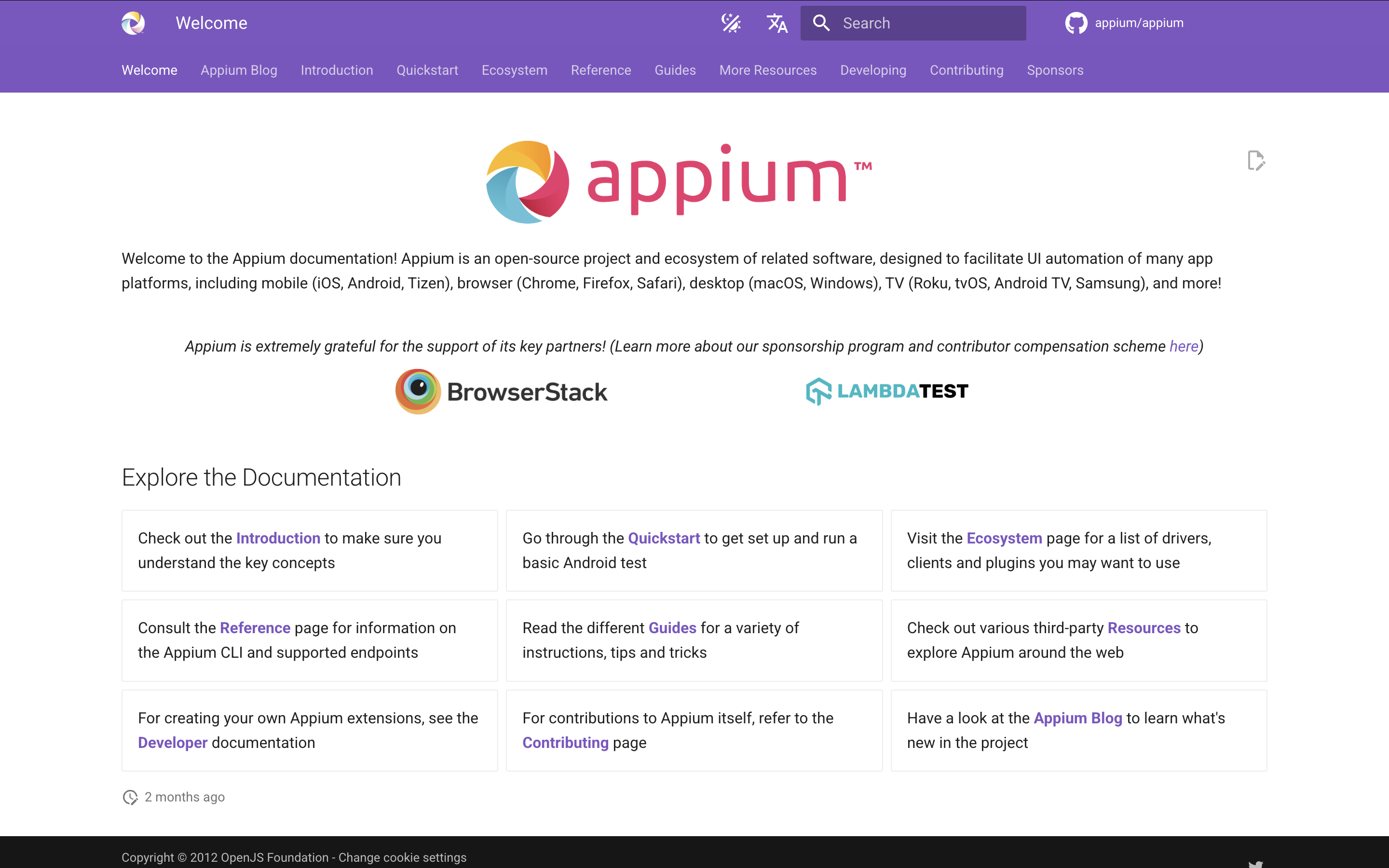
Feature highlights:
- Supported languages: Java, C#, Python, JavaScript, Ruby, PHP, Perl
- Cross-platform testing with reusable scripts
- Runs on real devices, simulators, and emulators
- Integrates with other frameworks and CI/CD systems
Visit Appium Website | G2 Reviews
4. Espresso [Native Android App Testing Framework]

For native Android developers, Espresso is a familiar name.
Developed by Google, Espresso is a UI test automation framework for Android. It offers a simple, flexible API but is limited to Android-only testing.

Feature highlights:
- Supports Java and JUnit
- Lightweight APIs for easier maintenance
- Automatically synchronizes UI and test actions
- Can compile Android UI tests to APKs
- Useful for unit tests and black-box testing
Price: Open-source
5. XCUI Test [iOS Testing Framework]

XCUI Test, developed by Apple, allows iOS developers to write and run UI tests directly in Xcode. It is strictly for iOS and does not support Android.

Feature Highlights:
- Supports Swift and Objective-C
- Integrates with Xcode and supports test recording
- Provides assertions, methods, and subclasses for easier scripting
- Supports CI/CD integration
- Ideal for black-box testing
Price: Open-source
6. Playwright [Open-source Web Testing Automation Framework]

Playwright is another open-source automation framework for web browsers, developed by Microsoft. It automates browsers like Chrome, Firefox, and Safari, offering a powerful toolkit for browser automation and testing.
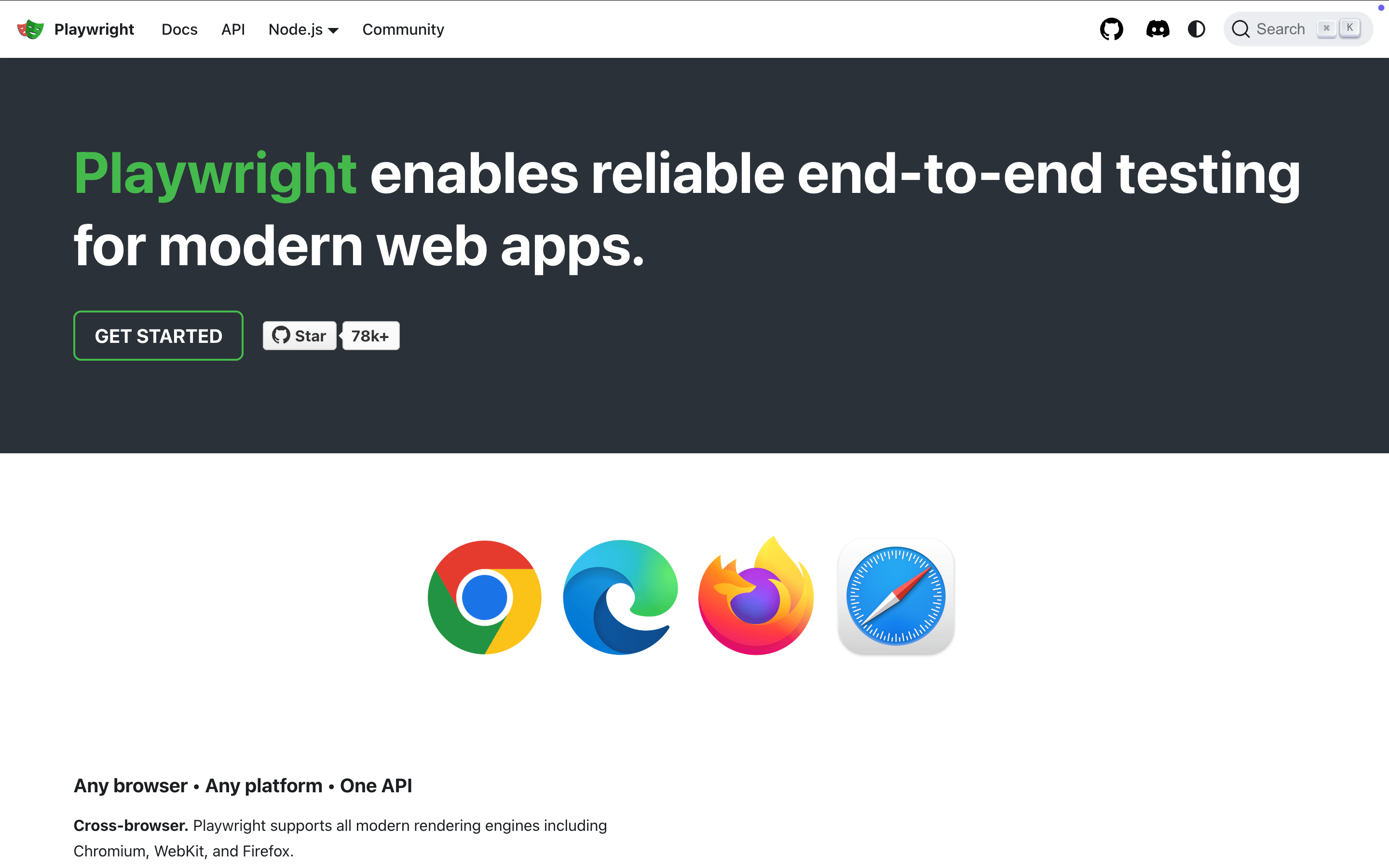
Key Features:
- Cross-Browser Support: Supports Chromium, Firefox, and WebKit for consistent cross-engine testing.
- Single API for Multiple Browsers: A unified API enables portable test scripts across browsers.
- Browser Contexts: Create isolated contexts for parallel execution with independent sessions.
- Headless and Headful Mode: Supports both headless execution for speed and headful mode for visual debugging. See also: headless browser testing
- Auto-Wait for Elements: Automatically waits for elements, improving test stability.
- Access to Browser Context Events: Subscribe to context-level events for detailed browser insights.
- Device Emulation: Emulate mobile and other devices to test responsive design and UX consistency.
- Native Input Events: Uses real input events for highly reliable simulation of user interactions.
7. WebLoad

WebLOAD, developed by RadView Software, is a performance testing solution for evaluating the scalability, stress resistance, and reliability of web and mobile applications.
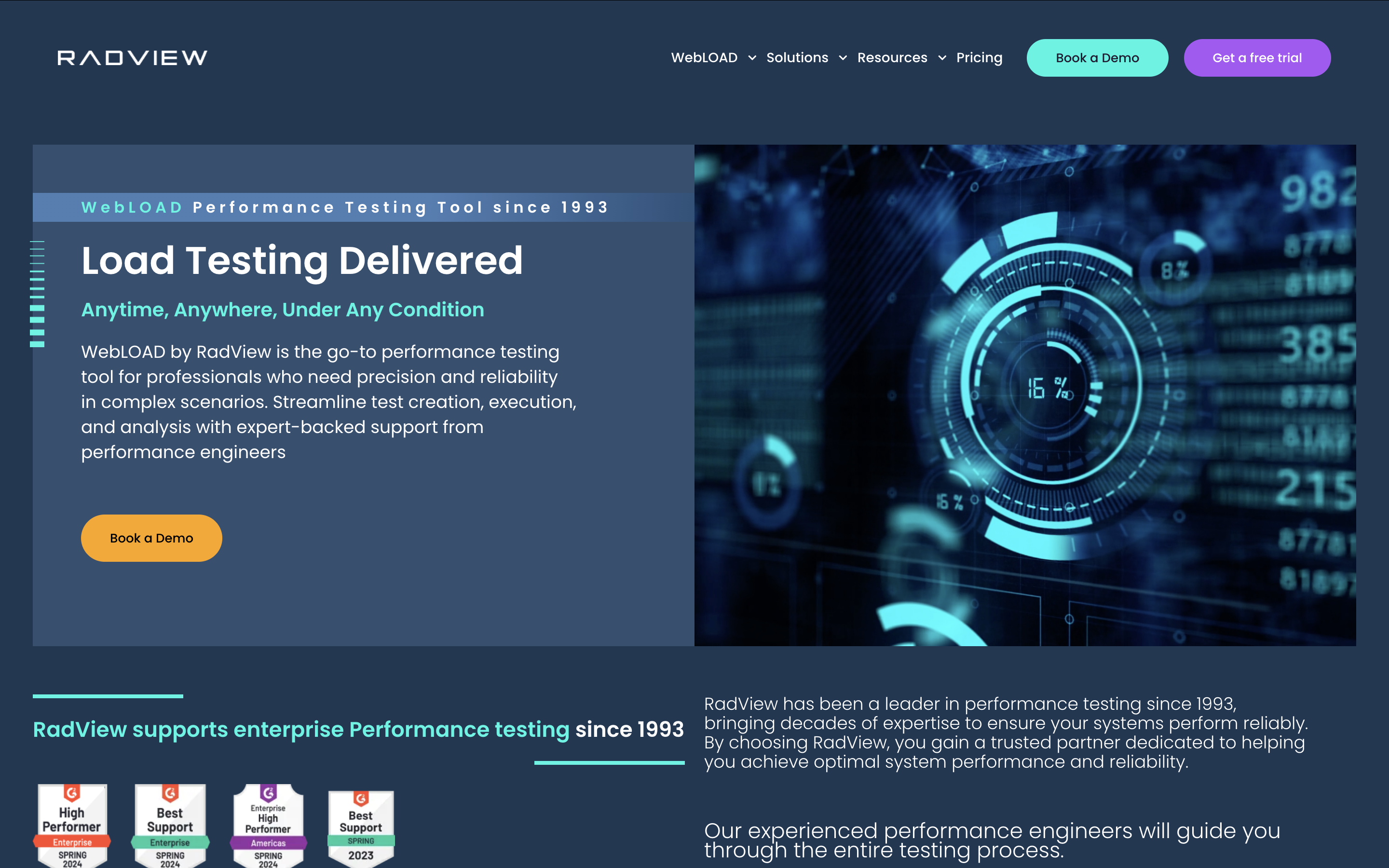
Key Features:
- WebLOAD.AI enables AI-driven smart correlation with JavaScript flexibility.
- Versatile scripting supports complex workflows, WebSocket APIs, and asynchronous communication.
- Realistic test simulations with customizable conditions and global test locations.
- Comprehensive testing with protocol- and browser-based scripts, virtual users, and flexible ramp-up settings.
- AI-powered insights for performance analysis and rapid issue resolution.
- Expert support with AI-enhanced best practices for optimized testing.
Pricing: Contact the sales team for details.
8. Mabl

Mabl is one of the first AI testing tools and provides AI-powered features to enhance software testing workflows.
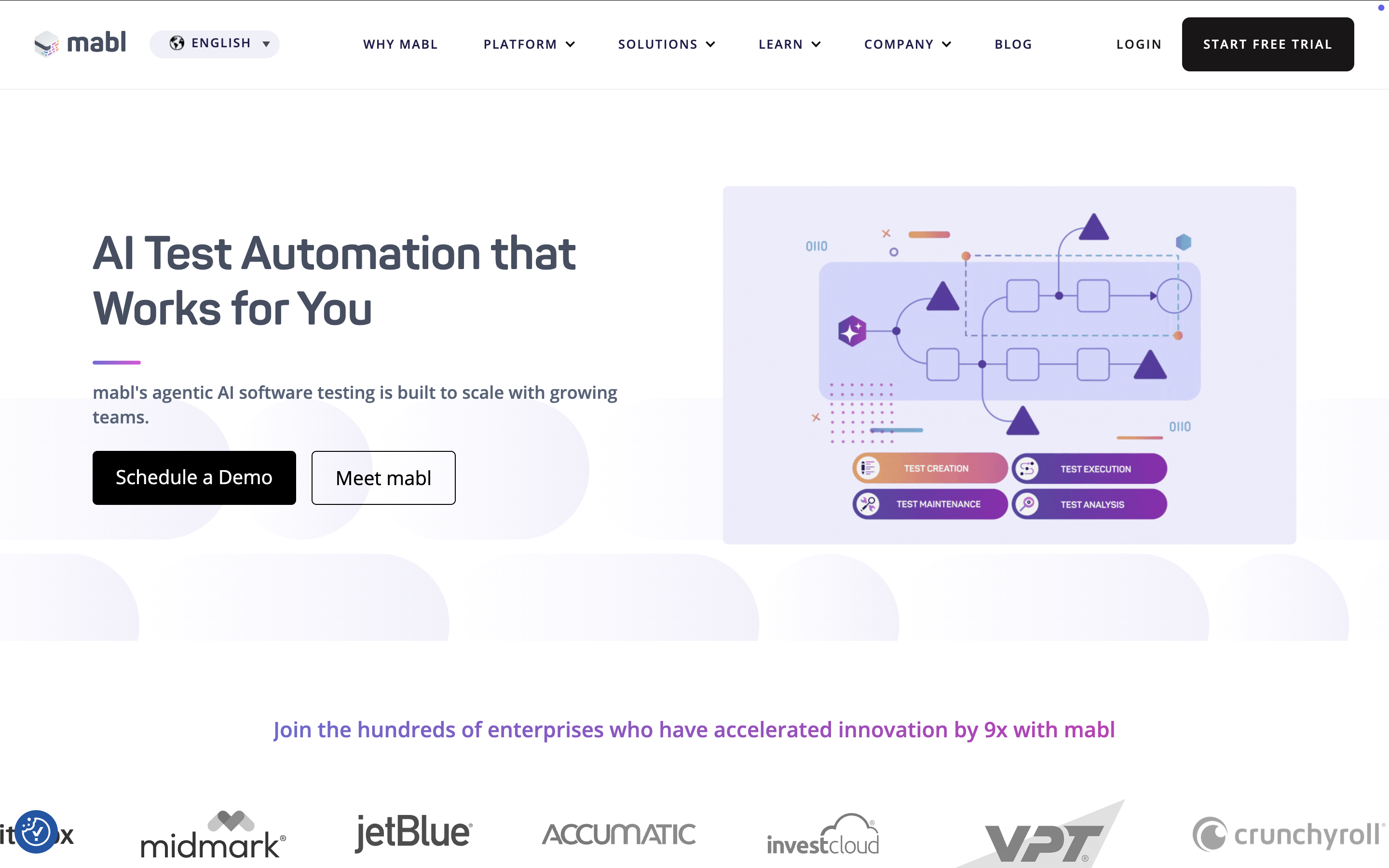
Key Features:
- Low-code test creation to accelerate quality initiatives
- AI-driven healing and intelligent automation
- Data-driven testing for real-world workflows
- End-to-end testing via APIs
- Insightful analytics dashboards for development teams
- User-friendly UI for fast navigation
Visit Mabl Website | G2 Reviews
Pricing: For detailed pricing information, contact the Mabl sales team.
9. TestComplete

TestComplete can automate functional UI testing for desktop, mobile, and web applications. With built-in support for 500+ controls and third-party frameworks, TestComplete handles dynamic UI elements across modern technologies.
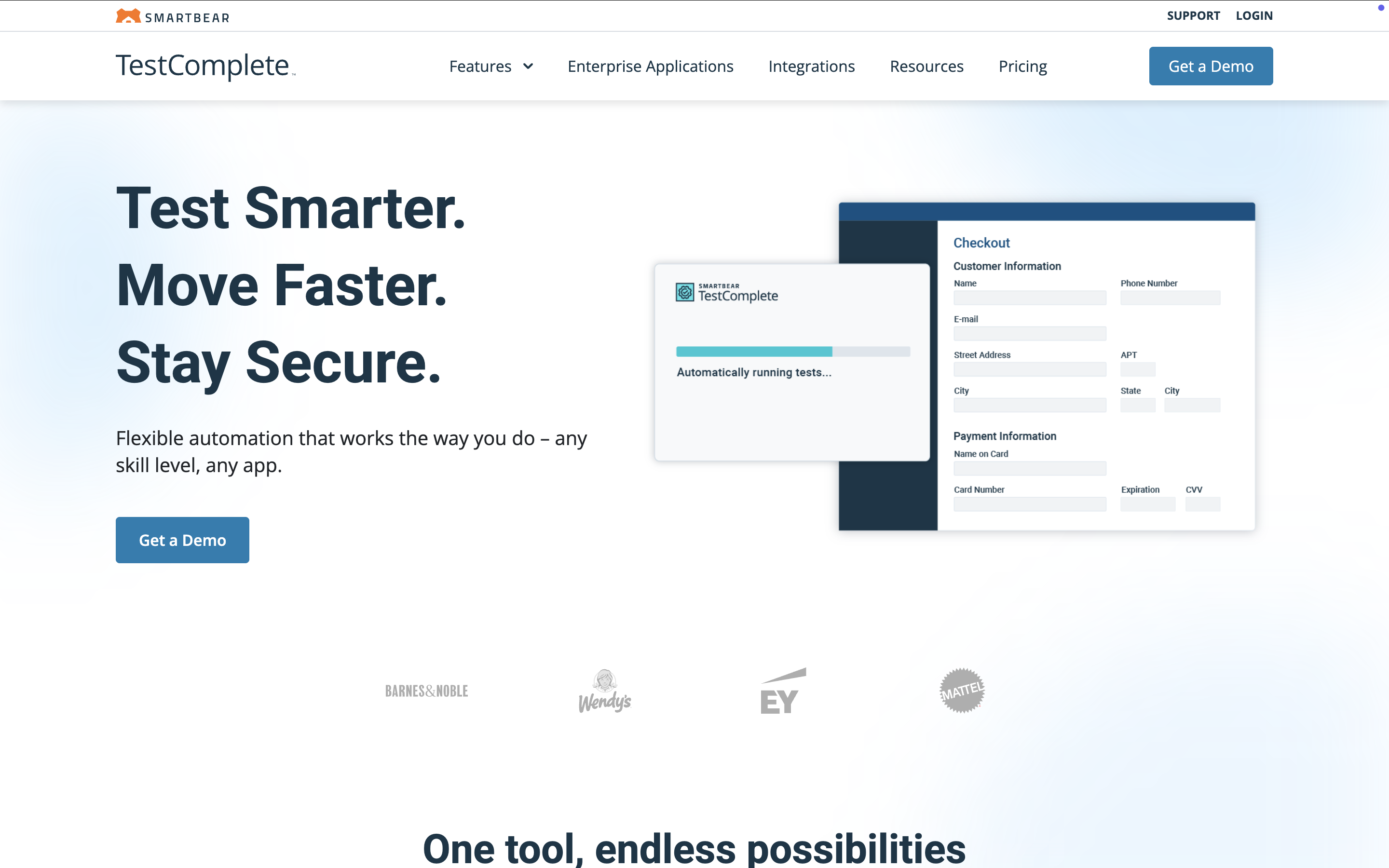
Feature highlights:
- Supported languages: JavaScript, Python, VBScript, JScript, Delphi, C++, C#
- Flexible test design: Record & playback, manual, and scripting modes with built-in keywords
- Advanced object identification: Property-based and AI-powered visual recognition
- Comprehensive testing: Parallel execution across browsers and devices
- Seamless integrations: Works with major frameworks, CI/CD platforms, and the SmartBear ecosystem
Visit TestComplete Website | G2 Reviews
Pricing tiers: TestComplete Base, TestComplete Pro, Custom Pricing
10. Cypress

Cypress is a developer-focused automation tool for end-to-end web testing, built specifically for JavaScript frameworks. Its unique architecture runs inside the browser, giving it native access to elements and enabling fast, reliable execution.
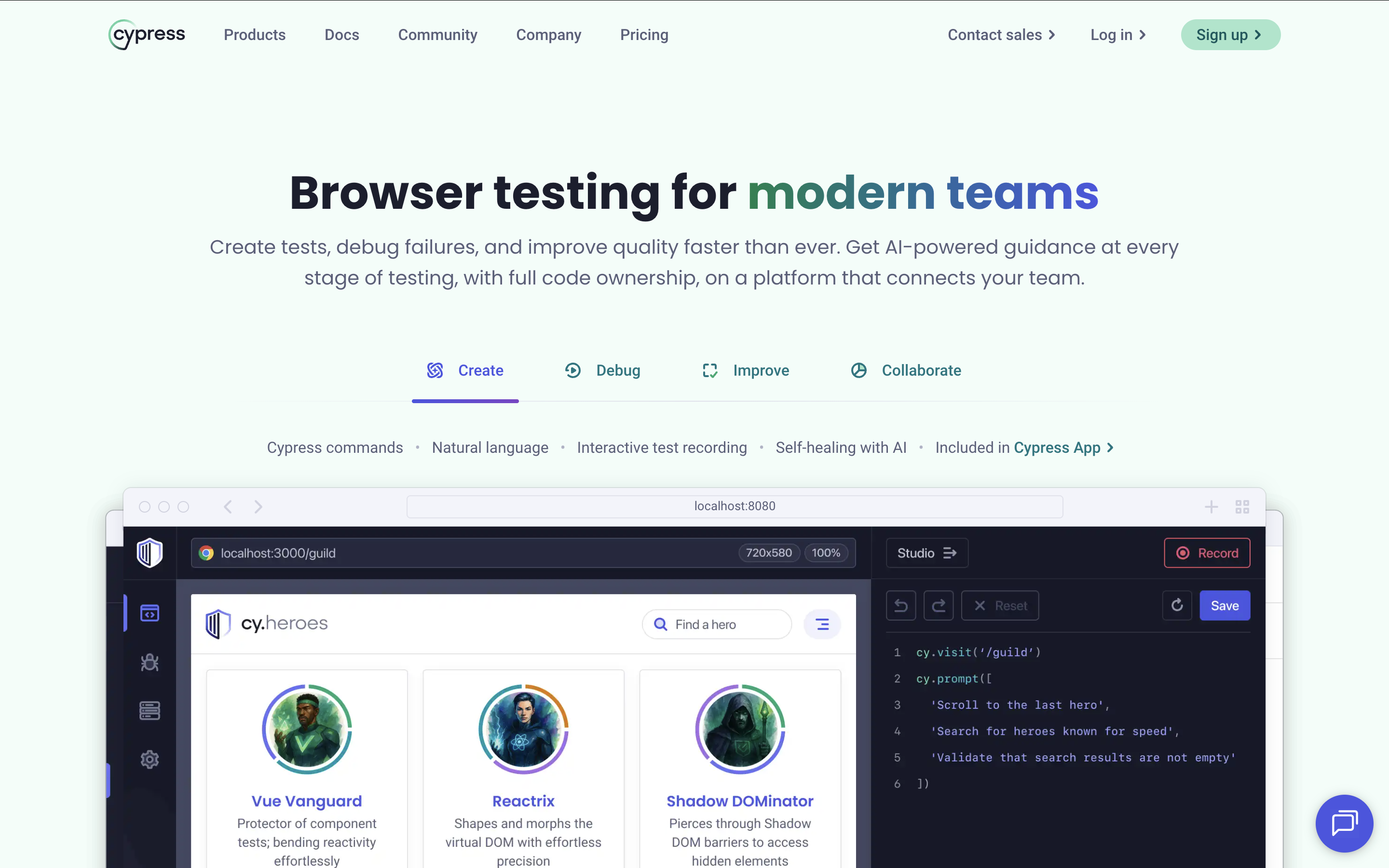
Feature Highlights:
- Supported language: JavaScript
- Snapshots & debugging: Full access to browser developer tools
- Control over functions, server responses, timers, and network traffic
- Cypress Cloud integration for performance monitoring and optimization
- Seamless CI/CD integrations for streamlined automation pipelines
Visit Cypress Website | G2 Reviews
Price: Free or from $75/month for Cypress Cloud
11. Perfecto

Perfecto is a cloud-based automated testing tool for web and mobile applications. It enables automated cross-environment execution, custom capabilities, test analytics, and strong integrations to support continuous testing for DevOps teams.

Feature highlights:
- Scriptless test creation for UI web apps
- Real-user simulation for mobile testing (network visualization, environment controls)
- Parallel and cross-platform execution
- Advanced test analytics with centralized dashboard and AI noise filtering
- Integrations with testing frameworks and CI/CD tools
Visit Perfecto Website | G2 Reviews
Price: From $125/month
12. LambdaTest

LambdaTest provides automated cloud-based testing with fast parallel execution, cross-browser/cross-device coverage, and large-scale test environments.
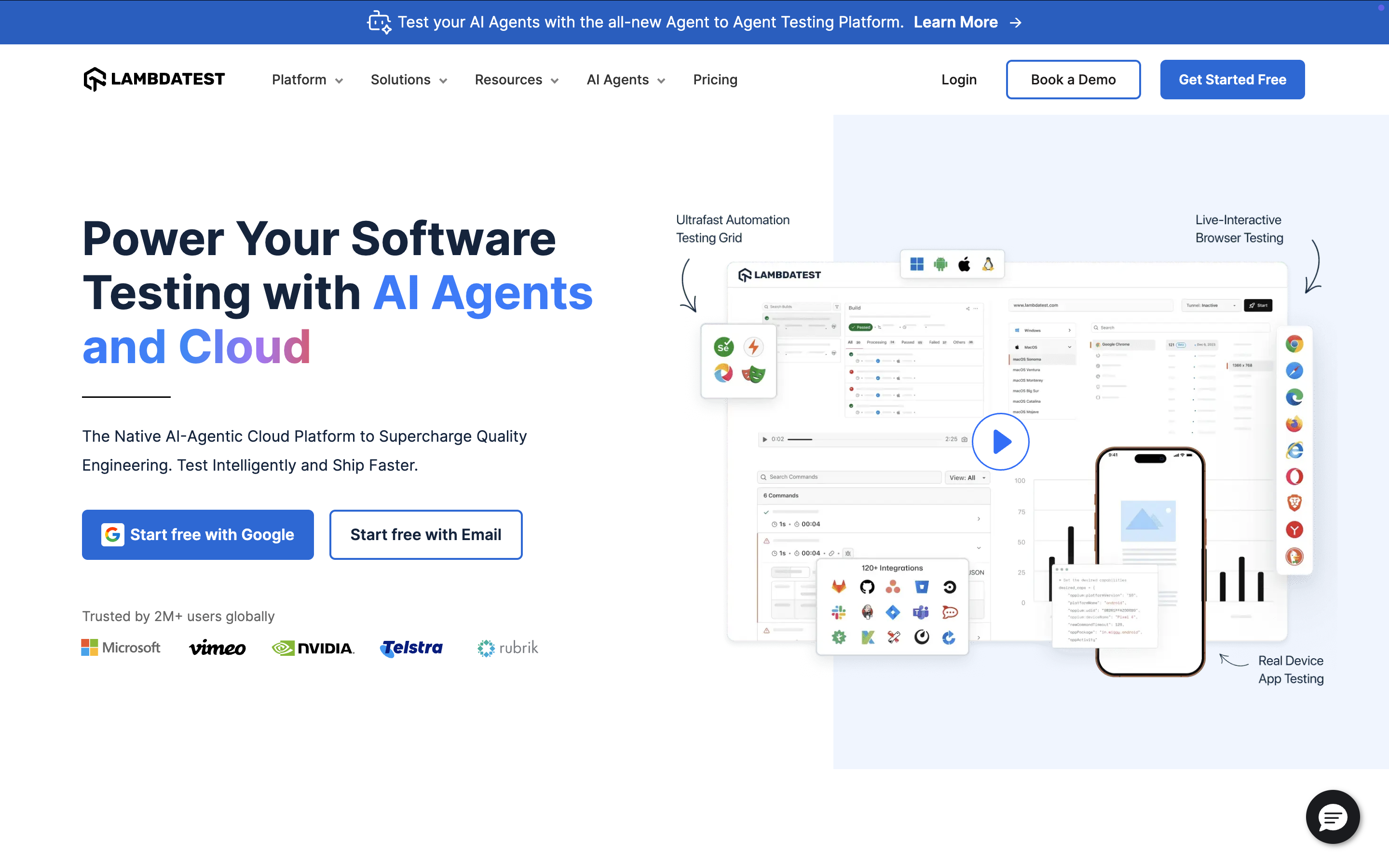
Feature highlights:
- Online Selenium Grid with 2,000+ devices, browsers, OS combinations
- Parallel & cross-browser support for Cypress tests
- Geolocation testing across 27+ countries
- Integrations with major CI/CD tools and frameworks
Visit LambdaTest Website
Price: From $99/month
13. Postman

Postman is one of the most widely used API testing tools. It supports functional, integration, and regression testing and can run tests automatically via CLI in CI/CD pipelines.
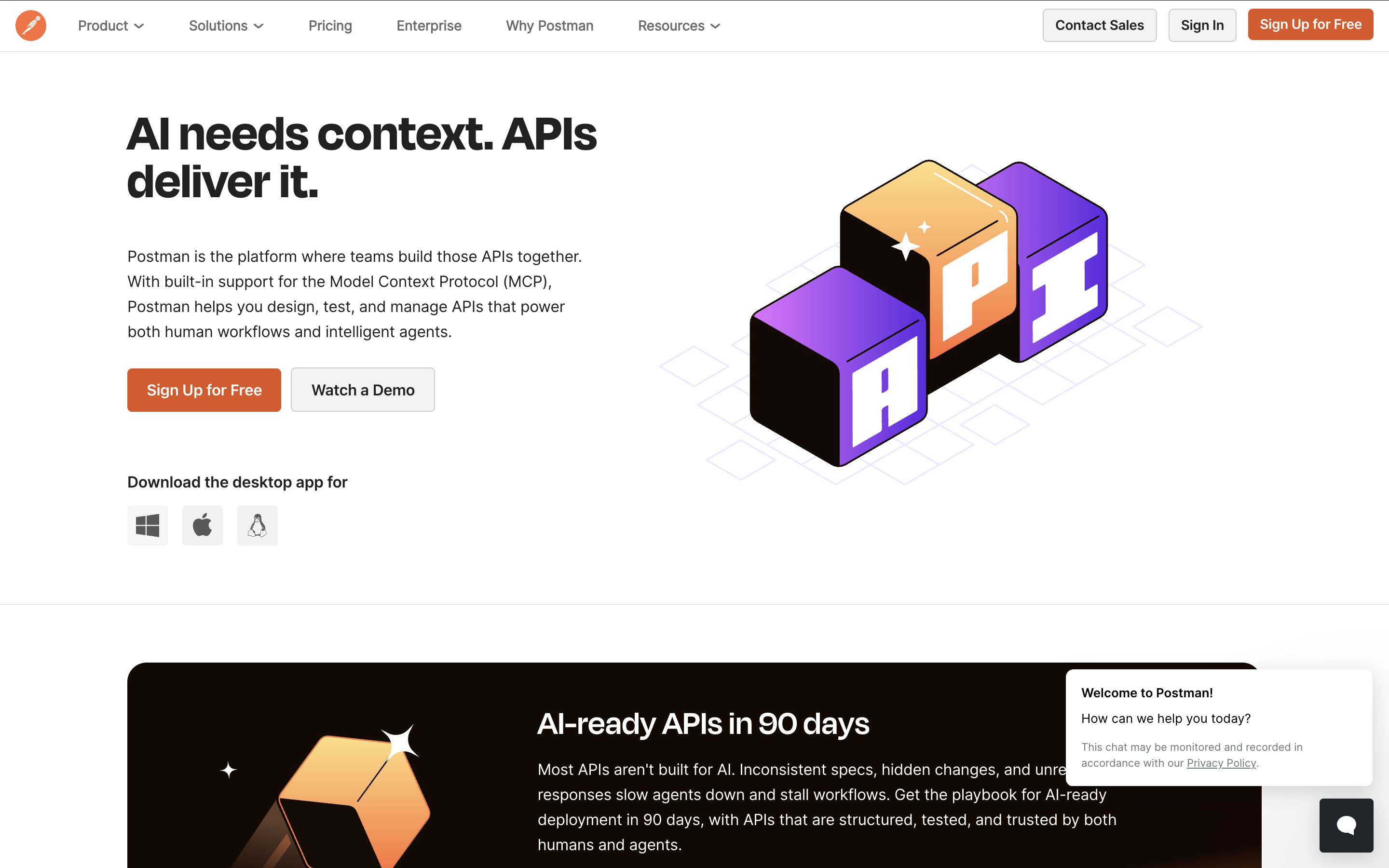
Feature highlights:
- Easy-to-use interface with code snippets
- Supports HTML methods, Swagger, RAML
- Broad support for API schemas and collection generation
- Parameterization, debugging, and test suite management
- CI/CD integrations
Visit Postman Website | G2 Reviews
Price: Free or from $12/user/month
14. SoapUI

SoapUI is a testing tool for REST and SOAP APIs, providing automated functional, performance, and security testing. For more advanced features, use the commercial version, ReadyAPI (formerly SoapUI Pro).
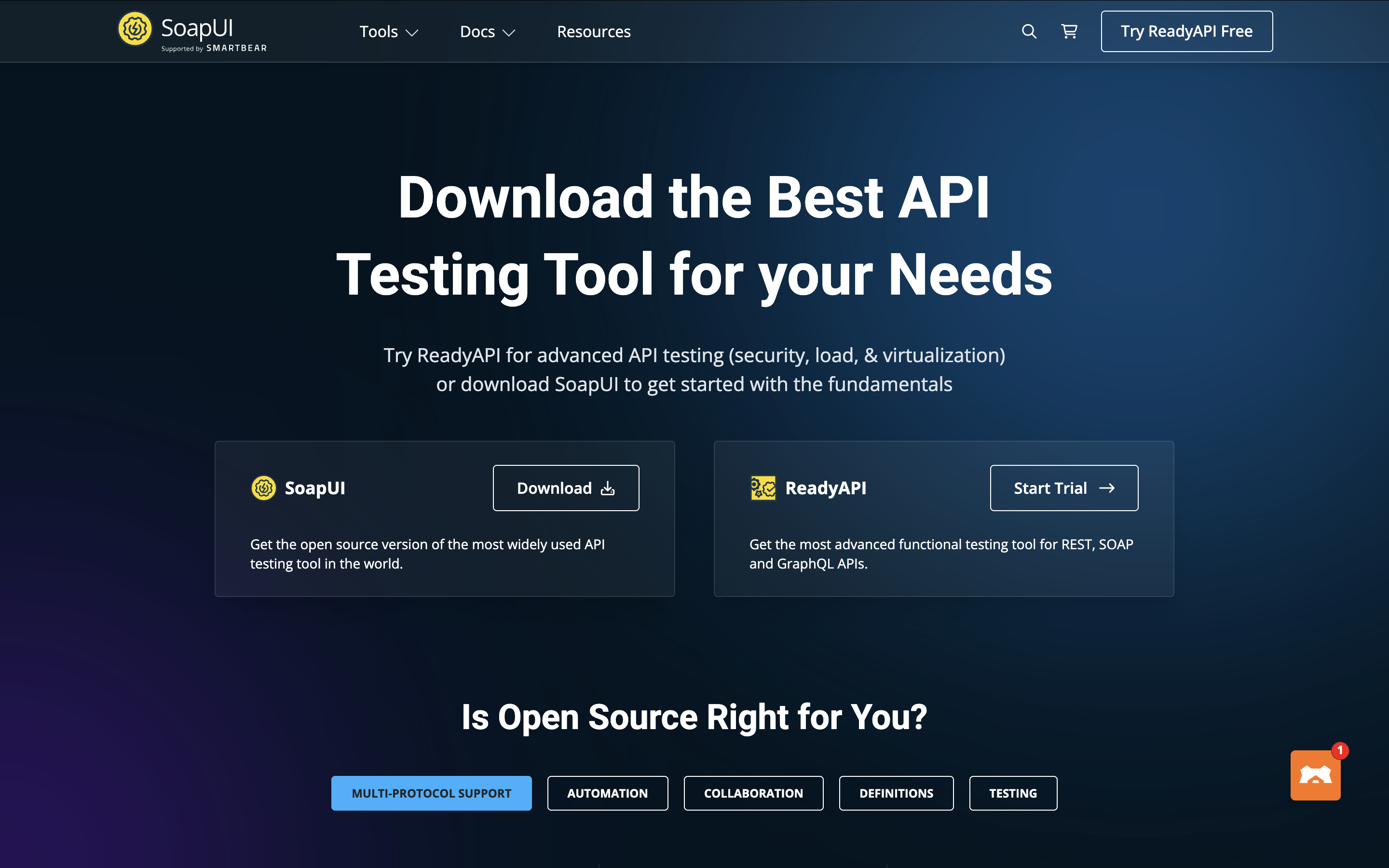
Feature Highlights:
- Intuitive drag-and-drop test creation
- Service simulation for testing without production systems
- Reusable test scripts
- Advanced protocol support & CI/CD integrations via ReadyAPI
Visit SoapUI Website | G2 Reviews
Price: Free or from $749/year for ReadyAPI
15. Keysight Eggplant

Keysight Eggplant is a GUI automation tool for mobile, desktop, and web apps. It uses image-based automation to enable one script to run across mixed platforms.

Feature highlights:
- Multiple design methods: recording, manual, assisted scripting
- SenseTalk English-like scripting language
- Connected Eggplant ecosystem for test monitoring
- Integrations with major CI/CD tools
Visit Keysight Eggplant Website | G2 Reviews
Price: Contact sales
16. Tricentis Tosca

Tricentis Tosca is a comprehensive tool for web, API, mobile, and desktop testing. It uses a model-based testing approach to create scalable, business-readable test models.

Feature Highlights:
- Codeless test creation with reusable models
- Risk-based test optimization
- Service virtualization support
- Extensive API scanning
- Parallel and cross-platform execution
- Integrations with testing frameworks and CI/CD tools
Visit Tricentis Tosca Website | G2 Reviews
Price: Contact sales
17. Apache JMeter

JMeter is an open-source load testing tool for web apps. It simulates heavy loads, analyzes performance, and can perform functional API testing.
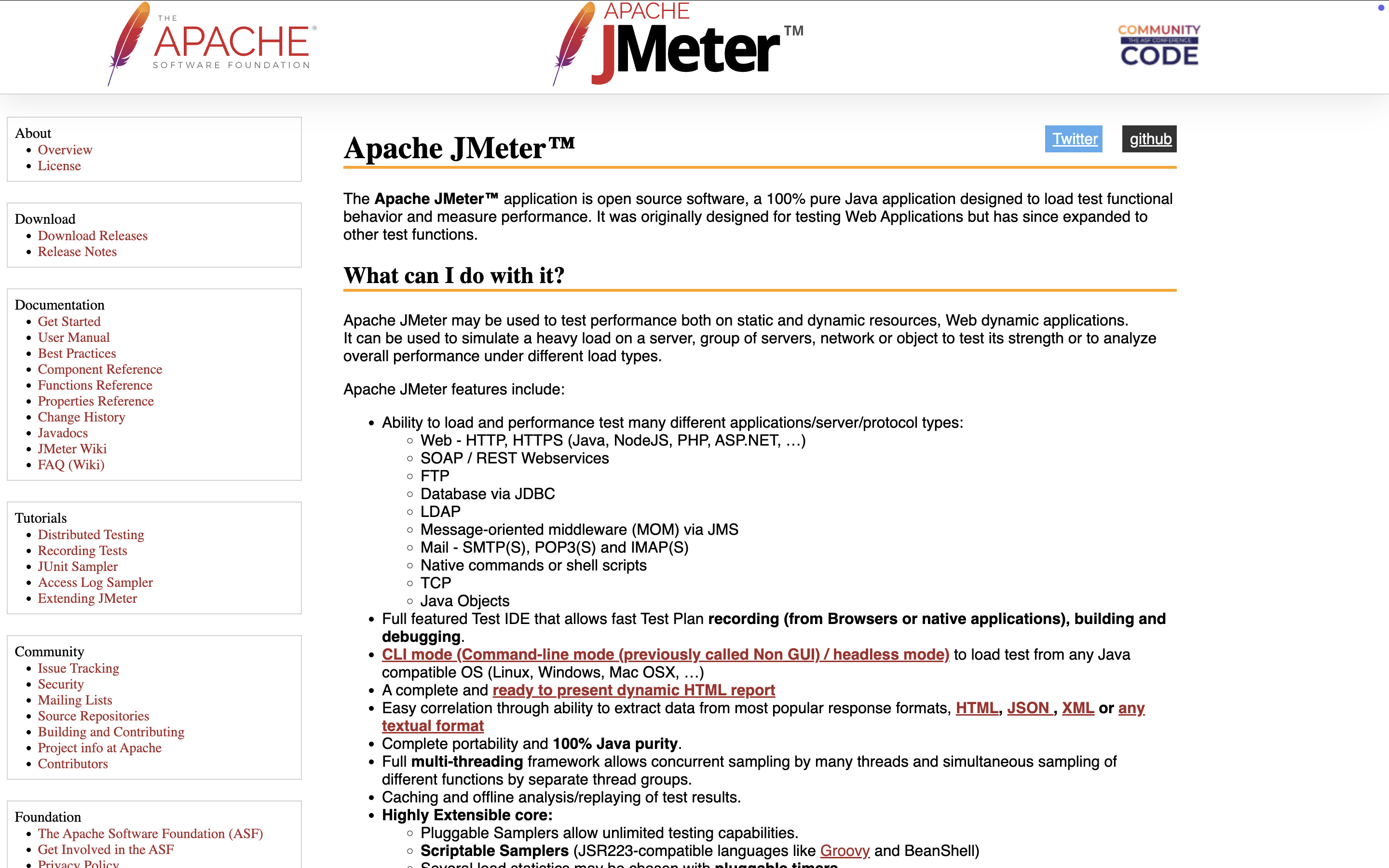
Feature highlights:
- User-friendly interface
- Recording-based test plan creation
- Supports GUI and CLI execution
- Wide server/protocol support
- CI/CD integrations
Visit JMeter Website | G2 Reviews
Price: Free
18. Robot Framework

Robot Framework is an open-source automation framework for acceptance testing and ATDD. It uses keyword-driven syntax and a rich ecosystem of libraries.

Feature Highlights:
- Simple test creation using tabular syntax
- Keyword-driven and data-driven support
- Variable support for multiple environments
- Extensive library ecosystem
Price: Free
19. Applitools

Applitools is an automated visual testing platform that detects UI bugs in web and mobile apps and ensures cross-device visual consistency.

Key Features:
- AI-powered visual bug detection
- Cross-platform testing
- Dynamic content handling
- Visual analytics over time
- Intelligent root cause analysis
Visit Applitools Website | G2 Reviews
Pricing: Applitools offers three tiers: Starter, Eye, and Ultrafast Test Cloud.
20. TestSigma

TestSigma is an emerging software testing tool supporting web, API, desktop, and mobile testing.

Highlight Features:
- No-code testing platform that allows creating tests in plain English
- AI-supported features for efficient test maintenance and cloud execution
- User-friendly test reports with screenshots, videos, logs, and customization options
- Seamless integrations with major CI/CD tools and cloud accessibility
Visit Testsigma Website | G2 Reviews
Pricing: Free plan available. Paid plans start at $349/month.
|
FAQs
What criteria should QA teams use to choose a software testing tool?
Look for usability/learning curve, support for web + mobile + API testing, no-code/low-code/full-code modes, CI/CD + VCS + project tool integrations, maintainability as the app changes, multi-environment execution (browsers/devices/OS), actionable reporting, scalability, community/docs/support, and budget fit.
Why are software testing tools (especially automation) considered high impact for QA?
Because adopting automation is linked to higher software quality and the ability to test more often and more thoroughly, improving coverage and release confidence.
Which tools cover end-to-end testing needs across web, mobile, and API in one platform?
Katalon is positioned as an all-in-one option, offering centralized management, scheduling, cross-environment execution, and rich reporting across web, mobile, API (and packaged apps) with AI-assisted and data-driven/BDD capabilities.
What are the go-to options if you want open-source frameworks for automation?
For web: Selenium (WebDriver/Grid/IDE, multi-language, cross-browser, parallel). For mobile: Appium (Android/iOS, native/web/hybrid, reusable scripts). For modern web automation: Playwright (Chromium/Firefox/WebKit, contexts, auto-wait, device emulation). For developer-first E2E JS: Cypress (runs in-browser, strong debugging/snapshots, CI/CD friendly).
What tools are highlighted for specialized needs like API, performance, and visual/UI validation?
API: Postman and SoapUI/ReadyAPI. Performance/load: WebLOAD and Apache JMeter. Visual/UI consistency: Applitools. Cross-browser cloud scale options include LambdaTest and Perfecto, while broader UI automation coverage includes TestComplete, Eggplant, and model-based enterprise automation like Tricentis Tosca.

%20(7).png)